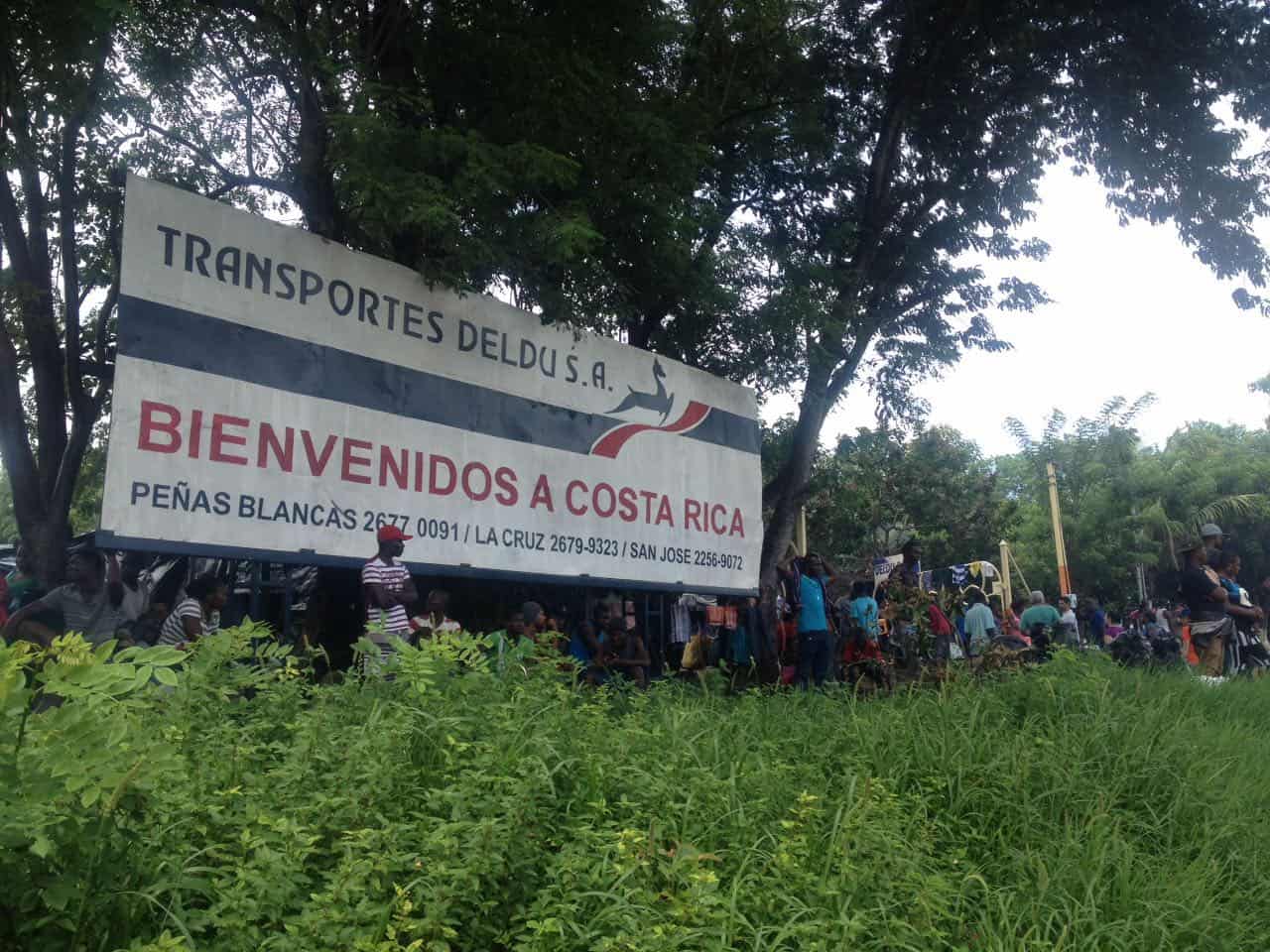Mattieu Komlou didn’t know where he was going to sleep Thursday night. That afternoon, he and two other friends he’s traveling with left on a bus from Los Chiles, Alajuela to the border crossing in Peñas Blancas, Guanacaste after the shelter where they were staying announced it would close Friday.
Komlou, an immigrant from the West African nation of Togo, traveled to Los Chiles two weeks ago from Paso Canoas, Puntarenas, where The Tico Times first spoke with him in June. He’s one of several thousand immigrants from Africa, Asia and Haiti who have arrived in Costa Rica in recent months on their way to the U.S.
Many have gotten stuck here — with no money and no desire to return home, and no way to get across the border into Nicaragua without the dubious help of smugglers.
In Los Chiles, Komlou and his friends had shared a simple hotel room and relied on a shelter run by the local Catholic church for meals. But the Franciscans who operate the shelter say they can’t afford to keep it open after they got an order from the Health Ministry requiring them to make capital improvements.
The closure of the shelter that housed 85 and fed 150 people a day will further concentrate ID-less, visa-less migrants in the area around Peñas Blancas as more arrive every day with no way forward.
Tensions flared at the border there Tuesday as hundreds of frustrated migrants blocked the Pan-American Highway for an hour, demanding they be allowed to cross into Nicaragua to continue their journey north.
A letter signed by Dr. Claudia Rosales Galeano, the Health Ministry’s director for Los Chiles, said the Franciscan shelter violated several health codes involving waste management, sanitation, overcrowding, firefighting equipment and food service, among others.
The ministry also said the shelter put the health of the surrounding community at risk. In the two months since the shelter opened, there have been two confirmed tuberculosis cases. The latest case was identified this week.
When asked for comment on the shelter closure, the Health Ministry sent The Tico Times an email saying “there is no intention to close the shelter in question by the area’s health authority nor [is there] an eviction order.”
But Friar Victor Treminio, who has been running the shelter in Los Chiles, told The Tico Times the parish did not have the financial means to make the improvements required by the Health Ministry and therefore decided to close the shelter.
Treminio said he knew the church’s facilities weren’t adequate for the number of people who were staying there, but questioned whether the ministry’s actions were in the best interest of the migrants.
He said the shelter was supposed to be a temporary fix while authorities looked for solutions to the migrant crisis. But so far, there are no solutions.
“We don’t know what’s going to happen to these people,” Treminio said. “If they can’t stay here, where will they go? The town square? The street?”
He and others are wondering when authorities will offer a more formal response to the situation, and what shape that response might take. Jorge Herrera, Red Cross regional president for Guanacaste, said the government must make some decisions soon about how to manage the growing number of migrants at the border.
Unlike the wave of Cuban migrants who got stuck in Costa Rica on their way to the U.S. in November and December, the government has declined to activate a nationwide system of temporary shelters for the so-called extra-continental migrants. As Nicaragua remains closed to immigrants without visas, growing numbers are building up at the border with access only to the most basic needs.
According to figures from the Immigration Administration, more than 4,000 undocumented migrants from across Africa, Asia and the Middle East have entered Costa Rica since April 23. Immigration officials say they suspect there are also Haitian migrants among the group.
Recommended: Deporting 600 migrants back to Africa could be expensive, and impossible
Herrera from the Red Cross said he’s most concerned about public health issues as more people from disparate parts of the world collect at the two attention centers for immigrants outside the Guanacaste towns of La Cruz and El Jobo. Currently, the Red Cross is providing basic medical care and access to drinking water and bathrooms.
According to Communication Minister Mauricio Herrera, there are approximately 1,000 immigrants in the area around Peñas Blancas.
Minister Herrera said the government is evaluating the possibility of opening other attention centers in the area to help meet the demand for basic services. But those centers, if they open, won’t be ready for Mattieu Komlou when he arrives.
Komlou said he didn’t know what he’d do when he got to Peñas Blancas. After spending a month longer in Costa Rica than he had planned, his money is running low, Komlou said.
He still isn’t thinking about hiring a smuggler to cross the border. But his frustration came through clearly over the phone from Los Chiles.
“There’s no movement here,” he said.
That’s one point upon which migrants like Komlou and the government agree.
“There is no way forward,” said Minister Herrera when asked if he thought the border would open any time soon. “Not to Nicaragua, not to the United States.”

